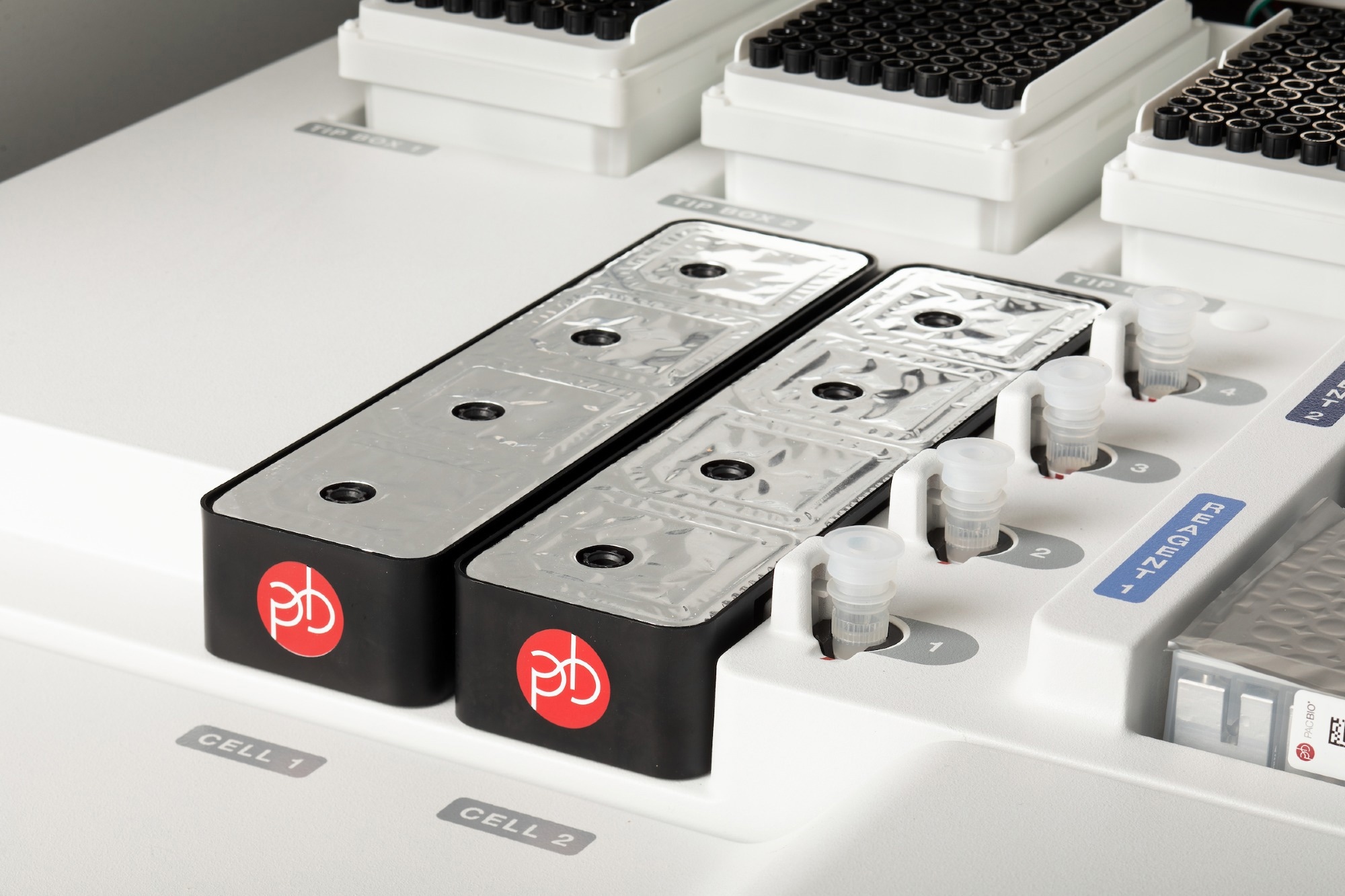PacBio, a leading developer of high-quality, highly accurate sequencing solutions, today announced that Bioscientia is using its Revio long-read sequencing system to expand its genomic research projects and sequence several thousand human genomes worldwide. year. Part of the Sonic Healthcare Group, Bioscientia is a leading global provider of clinical laboratory testing services for diagnostics headquartered in Germany. The increased accuracy, read length and methylation information offered by the Revio system will allow Bioscientia to explore some single-gene disorders, such as deafness, blindness and developmental delay, and to study the underlying causes of rare diseases.

Image credit: PacBio
“Bioscientia is a leading global provider of testing services, and we are thrilled that they have selected Revio to explore the potential clinical use of long-read sequencing,” said Christian Henry, PacBio president and chief executive officer. “Revio will enable Bioscientia to provide more information to families with fewer tests, lower overall costs and less time spent assembling genome maps. This research is vital to advancing our understanding of the role genetics play in rare diseases and developmental disorders. Working with companies like Bioscientia is an important step in achieving PacBio’s mission to enable the promise of genomics to improve human health.”
Whole genome sequencing using the Revio system allows you to consolidate multiple tests into one comprehensive solution, replacing the time-consuming and expensive multi-step evaluation process for rare diseases and developmental delay disorders. Previously, separate experiments such as chromosome analysis, optical genome mapping, and short-read exome sequencing were required. Leveraging Revio technology, researchers can now obtain vital data faster and more efficiently. This advance helps reduce costs, improve affordability and offer families hope of better understanding the genetic basis of some rare diseases, potentially transforming the landscape of rare disease diagnosis and developmental delay assessment.
“Revio will allow us to answer questions that previously we could not solve with exome sequencing alone, helping us to address many unsolved or partially resolved cases,” commented Professor Hanno Bolz, MD, head of human genetics at Bioscientia. “The purchase of these new Revio systems will significantly expand Bioscientia’s genomics capabilities. Results that previously required several tests can now be completed in one run with Revio. Haplotype phasing is possible on a single sample and no longer requires family segregation analysis. HiFi reads cover repetitive regions, genes with pseudogenic background, and allow for methylation analysis, so imprinting defects can be uncovered. We believe this technology will benefit families by providing greater clarity on the underlying causes of disease and ultimately shortening the diagnostic odyssey they face.”
Bioscientia will also use Revio for extensive testing of partially resolved samples and recessive disease scenarios. These are situations where Bioscientia’s current short-read exome sequencing technologies have not been able to provide more complete and definitive explanations. HiFi sequencing provides highly accurate complete genome sequencing, meaning that structural variations and even “hidden” gene mutations in complex and difficult-to-sequence regions are identified with greater confidence.
Bioscientia has pioneered innovation in complex diagnoses for over 50 years and we look forward to helping them further their mission. PacBio’s sequencing technologies are among the most accurate and comprehensive available today. Combined with advances in productivity and cost, we believe Revio will enable the Bioscientia team to further accelerate its leading field research into many applications of genomics.”
Jeff Eidel, Commercial Director, PacBio
#PacBios #Revio #longread #sequencing #system #Bioscientia #solve #complex #genetic #cases
Image Source : www.news-medical.net
